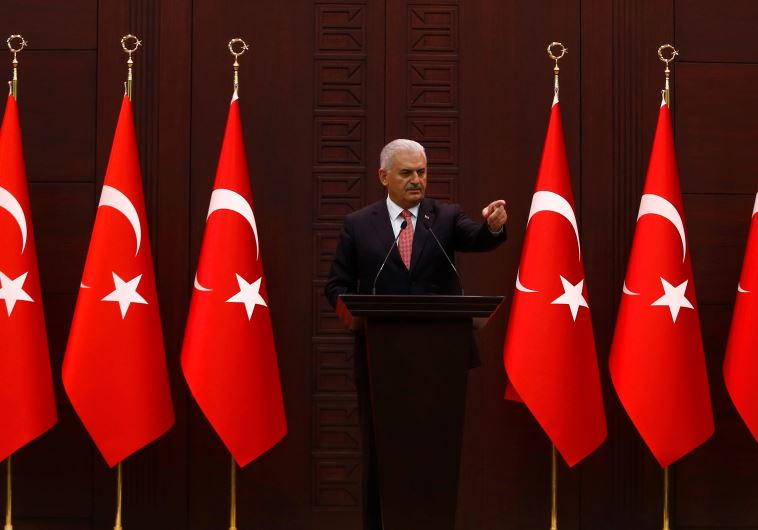No Turkish delight, but normalization is very much in Israel’s interest
“a positive and even critical development, given the regional challenges facing both countries.”
 Turkey's Prime Minister Binali Yildirim addresses the media in Ankara, Turkey, June 27, 2016Updated:
Turkey's Prime Minister Binali Yildirim addresses the media in Ankara, Turkey, June 27, 2016Updated: